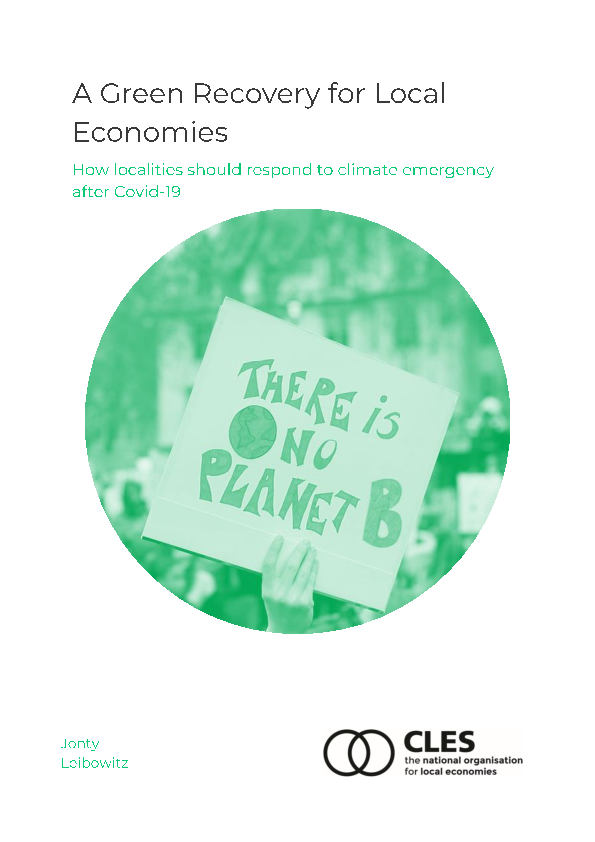Putting place at the heart of a green recovery
Building community wealth through community energy
With fresh discussion this week about the importance of a green recovery, it is increasingly clear that post-Covid rebuilding must have a just transition away from a carbon-based economy at its core. The government have promised £350 million to fuel a green recovery, and Labour have challenged them to go further and support up to 400,000 clean, green jobs, amongst other policies which could enable a green recovery.
While the shape of a green recovery is debated in central government, we know that to tackle the economic and environmental challenges we face (and which have been thrown into the light through the pandemic) it will be crucial to take an approach to economic recovery which recognises the importance of place. Our paper, A Green Recovery for Local Economies, released in July this year, articulates many opportunities for an approach to recovery which builds community wealth and places climate at the heart of how we “build back better”.
“a key, green opportunity for localities”
One area of potential is community energy – the delivery of community-led renewable energy, energy demand reduction and energy supply projects. These tools represent a key, green opportunity for localities to democratise their local economies, wield the power of anchor institutions and build community wealth. Community energy projects can be wholly owned and/or controlled by communities, or in partnership with commercial or public sector partners, thus placing communities at the centre of energy systems, creating accountability, participatory governance and democratising the benefits of carbon transition, alongside enabling the further decentralisation of the energy system.







